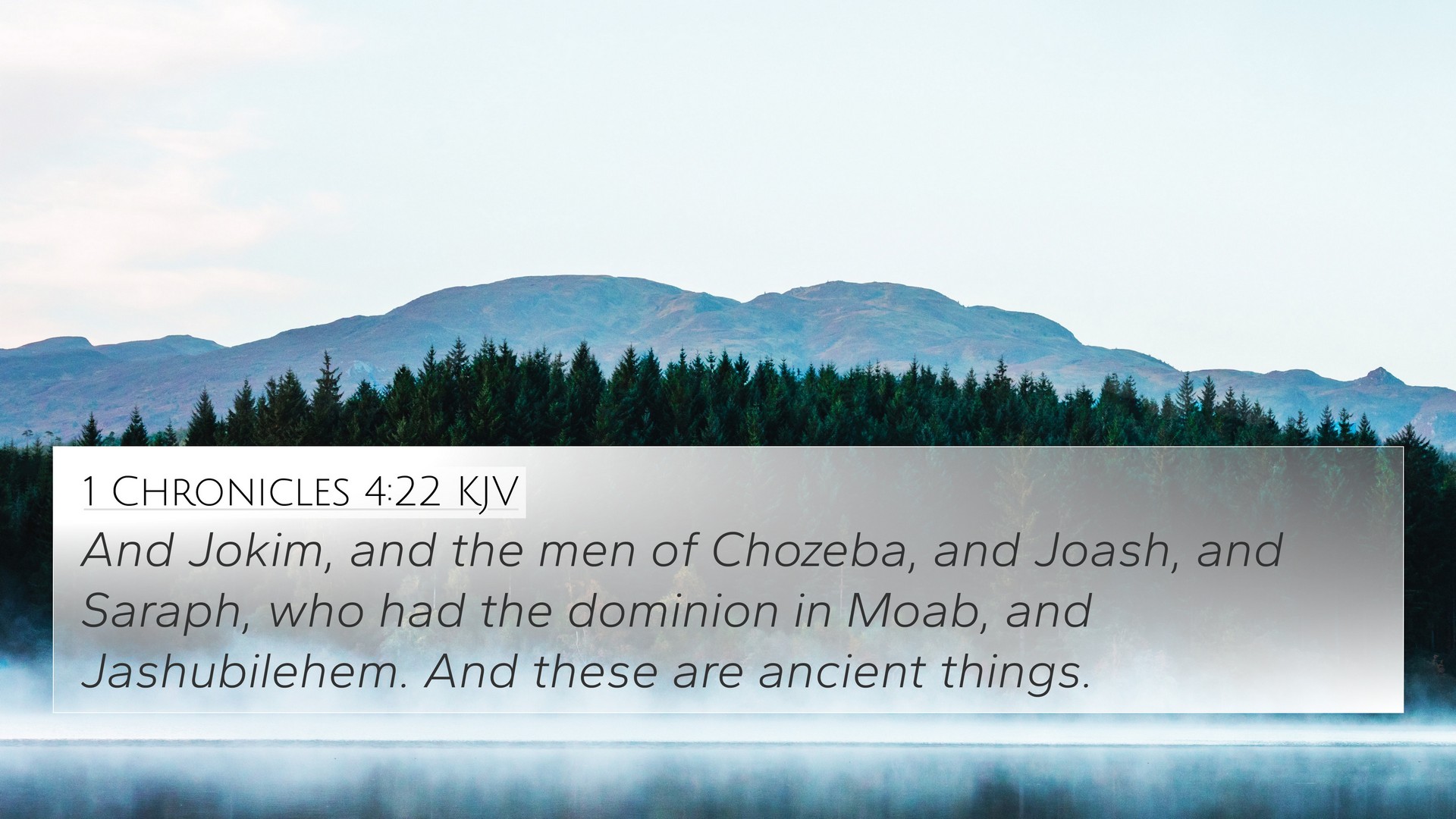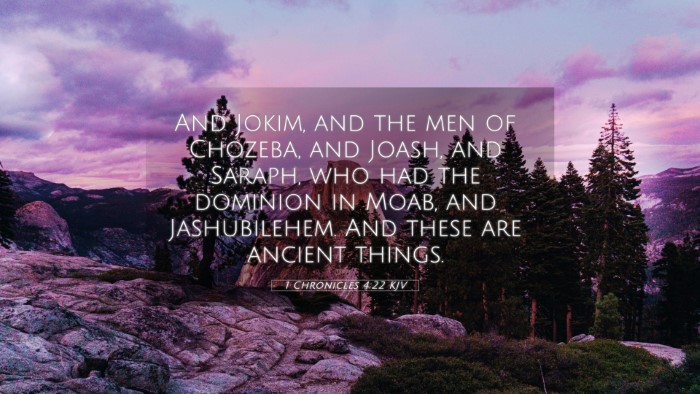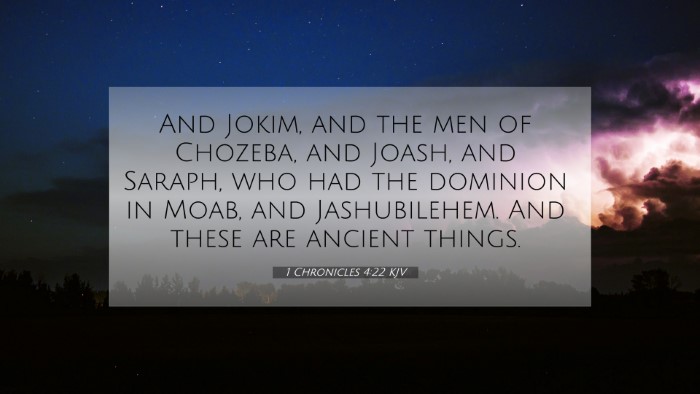Understanding 1 Chronicles 4:22
Verse: 1 Chronicles 4:22 - "And Jokim, and the men of Chozeba, and Joash, and Saraph, who had the dominion in Moab, and Jashubi-lehem." (KJV)
Summary of Meaning
This verse, part of a genealogical record, highlights certain individuals and their roles in the lineage of the people of Israel. It shows the historical context of the nation and the importance of familial ties and tribal connections. It also points to the ongoing narrative of Israel's history, where each name represents a story of legacy, responsibility, and divine providence.
Biblical Context
The context of 1 Chronicles focuses heavily on the genealogies and the establishment of God's people. It underscores how God has preserved a remnant through history and the connections between different tribes and families. The names listed often link to the larger narrative of Israel's journey and God’s faithfulness.
Commentary Insights
- Matthew Henry: Emphasizes the significance of genealogies in Scripture as they affirm God’s sovereign plan through generations. The names listed indicate the varied roles within the community, calling attention to God's ongoing involvement in human affairs.
- Albert Barnes: Notes the mention of Moab and the dominions of these families, shedding light on the interactions between Israelites and neighboring nations. This indicates not just political power but also spiritual and communal identity.
- Adam Clarke: Discusses the importance of individual mentions in genealogies, highlighting that each name carries its account and indicates God's purpose in history. He suggests that these records serve to establish the continuity of God’s covenant throughout the ages.
Cross-References
In exploring this verse, we find several other scripture passages that contribute to a deeper understanding of its significance:
- Ruth 1:16-17: This passage shows the commitment to family and heritage which is echoed in the genealogies.
- Jeremiah 48:1: Discusses Moab's significance and relations, providing historical context that complements the mention in Chronicles.
- Matthew 1:5-6: Connects genealogical lines between the Old Testament and the New Testament, illustrating God's fidelity through generations.
- Hebrews 7:14: References the priesthood and lineage, linking back to the significance of ancestry in defining roles in God’s plan.
- Numbers 26:3: A census that shows the importance of tribal identities within the Israelite community.
- 1 Chronicles 2:55: Further genealogical details that contextualize 1 Chronicles 4:22 and expand on the roles of specific families.
- 1 Samuel 10:1: Highlights the anointing of rulers and God’s choice - an important theme throughout the historical narrative.
Connections to Other Bible Verses
This verse exemplifies the inter-Biblical dialogue present throughout Scripture, where historical narratives and spiritual truths intertwine. Here are connections to consider:
- Exploring genealogical themes: Genesis 5 and Matthew 1 both reinforce the importance of lineage.
- Thematic connections in God's providence: Romans 8:28 and Esther 4:14 both illustrate God's sovereignty amidst human history.
- Understanding dominion and authority in spiritual contexts: Isaiah 9:6-7 presents the ultimate reign of Christ, whose lineage can be traced back to these genealogies.
Conclusion
1 Chronicles 4:22 is not merely a list of names but a profound affirmation of God’s sovereign hand in the lives of His people. The connections made in this verse serve to remind believers of the continuous narrative of redemption and purpose that spans both the Old and New Testaments.
Further Study Tools
For those interested in studying cross-references more deeply, consider using:
- Bible concordance to identify terms and themes.
- Cross-reference Bible study guides to enhance understanding.
- Tools for thematic Bible verse connections that relate to today's discussions.


